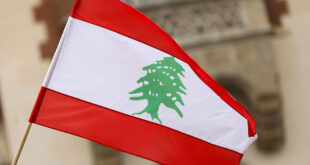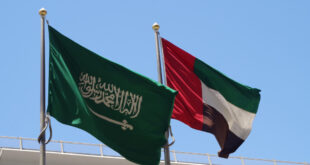It still looks like an oasis in the desert, but Baghdad’s smart set does not drive out to play beside the pristine lake at Habbaniyah any more.The luxury holiday chalets of Iraq’s former top tourist resort are now home to an unhappy community of Sunni Arab refugees, driven from the capital by the death threats of Shiites.
For Zayed Hameed, who spent his honeymoon here 20 years ago, the memory is a bitter reminder of the life that he has lost.
“I went to Europe more than once, but Habbaniyah was just as good, except cheaper and only a short drive away,” said the 45-year-old civil servant, who has remained in Baghdad.
It still looks like a privileged playground.
The funfair’s Ferris wheel pokes above palm trees near an imposing hotel, and the disco and personal holiday home of Iraq’s former leader Saddam Hussein hug the crystal clear lake.
The 200 villas still have most of their original furniture including televisions, but with no generator, the refugees said they are lucky to get a few hours of power a day from the dilapidated national grid.
The lakeside beach also looks the same, although sunbathers have been replaced by children using it for the family laundry, or to collect drinking water, and today’s fishermen are foraging in earnest.
“There is no food here,” said Mahmoud Majeed, a 47-year father of seven who abandoned his home in the Amil district of west Baghdad last year after a visit from the Mehdi Army militia loyal to fiery Shiite cleric Moqtada Al Sadr.
Some of the refugees said if they could not catch fish from the lake, they would usually end up just eating bread.
‘Like a prison’
About 300 families fled to Habbaniyah, 85 kilometres west of the capital, after suspected Sunni Islamist Al Qaeda fighters destroyed the dome of the Golden Mosque in Samarra in February 2006, triggering a wave of sectarian bloodshed.
They are among some four million Iraqis who have quit their homes since the US-led invasion in 2003.
Half have made it over the border, mainly to Syria and Jordan, while the other two million have sought refuge in their own sectarian and ethnic communities.
Some are surviving in tented camps in the scorching desert.
Habbaniyah’s refugees may be living in far more comfortable surroundings, but they still have no work, no money, and no running water. “It’s free, but it feels like a prison,” said Wadah Ghafour, who moved his family here from west Baghdad last year.
“My children are sick. We have no medicine and no food. To get them treatment, I would have to walk to Falluja,” he said.
The Sunni Arab city of Fallujah 30km (20 miles) to the west has Habbaniyah’s closest hospital now that the resort’s own clinic has closed. But a vehicle ban means only taxis and buses may use the road — a trip costing around 40,000 dinar ($30) Ghafour says he does not have.
The prohibition on driving means the only people delivering food are American Marines who patrol western Anbar province.
Charities in Fallujah used to come but can no longer get through.
“We’ve had to beg … Where is the government?” said Majeed.
 Eurasia Press & News
Eurasia Press & News

